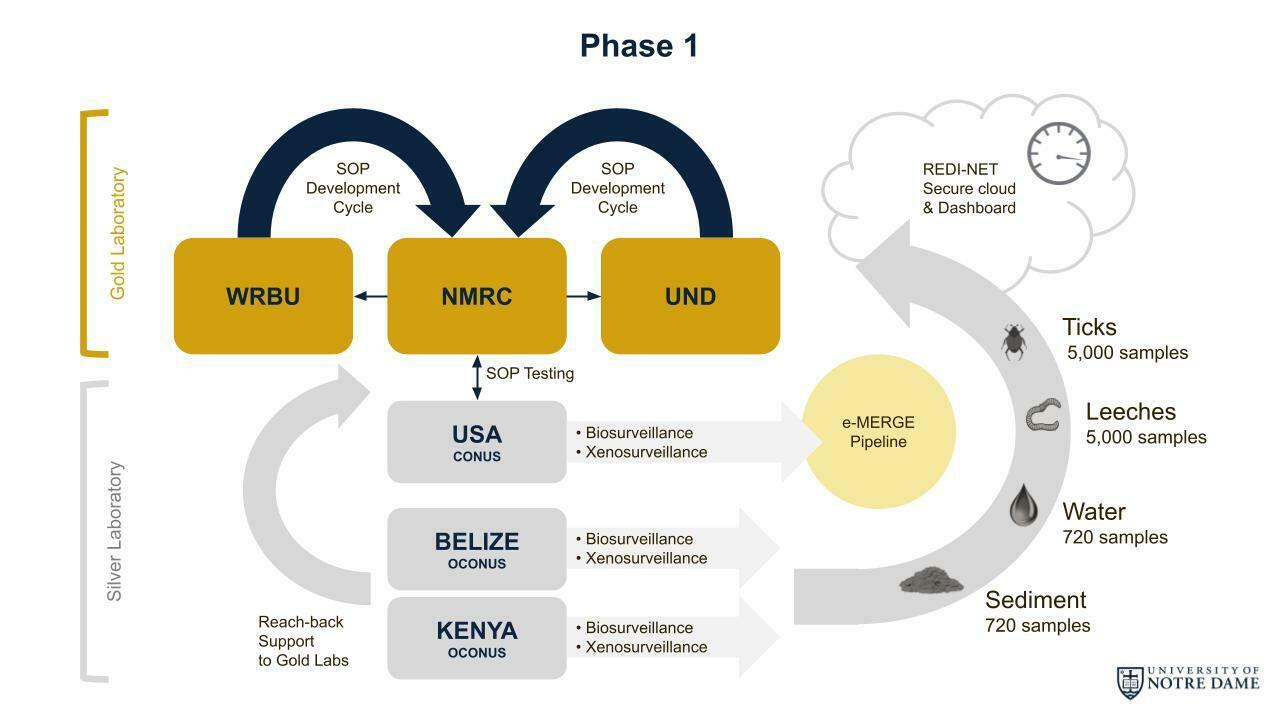Phase I
During phase I, the REDI-NET program generated evidence through two levels of laboratories to evaluate three hypotheses using descriptive analyses that informed improvement in forecasting potential risk of exposure for local communities. Gold labs include the University of Notre Dame, the Naval Medical Research Center, and the Walter Reed Biosystematics Unit. Silver labs consist of the Belize Vector and Ecology Center (Belize), the Navy Entomology Center of Excellence (USA), and the Mpala Research Centre (Kenya).
The hypotheses to be evaluated during phase I:
- Accuracy of Tick ID at remote facilities
- Access to Rigorous Data at reach-back facilities
- Visualization and predicting risk of emerging pathogen(s)
Focusing on enhanced surveillance approaches to characterize naturally occurring pathogens in temperate, tropical forest, and tropical grassland sites, the REDI-NET Consortium will continue to optimize standard operating procedures across three continents enabling remote, verified in-situ, near real-time data acquisition, instituting a data management pipeline for actionable reporting and threat forecasting throughout upcoming phases.
Central to the goals of the REDI-NET consortium is the establishment of the e-MERGE pipeline that will allow the reach-back Gold labs to remotely access and support the cross-seasonal environmental pathogen monitoring of the forward-facing Silver labs, in real-time. This core functionality, facilitated by stringent, robust SOPs will ensure a unified data collection, processing, and sharing strategy from remote global theatres that will facilitate rapid, automated downstream analyses of field-generated NGS data and instantaneous upload of accurate, verified results to the REDI-NET project alert dashboard. Data will be simultaneously submitted to VectorMap VectorBase for transparency and data sharing with other interested parties and will be facilitated by Application Programming Interface. This novel e-MERGE pipeline is critical for the timely detection and mitigation of potential zoonotic pathogen spillover events in remote theatres.
Phase I Study Design
